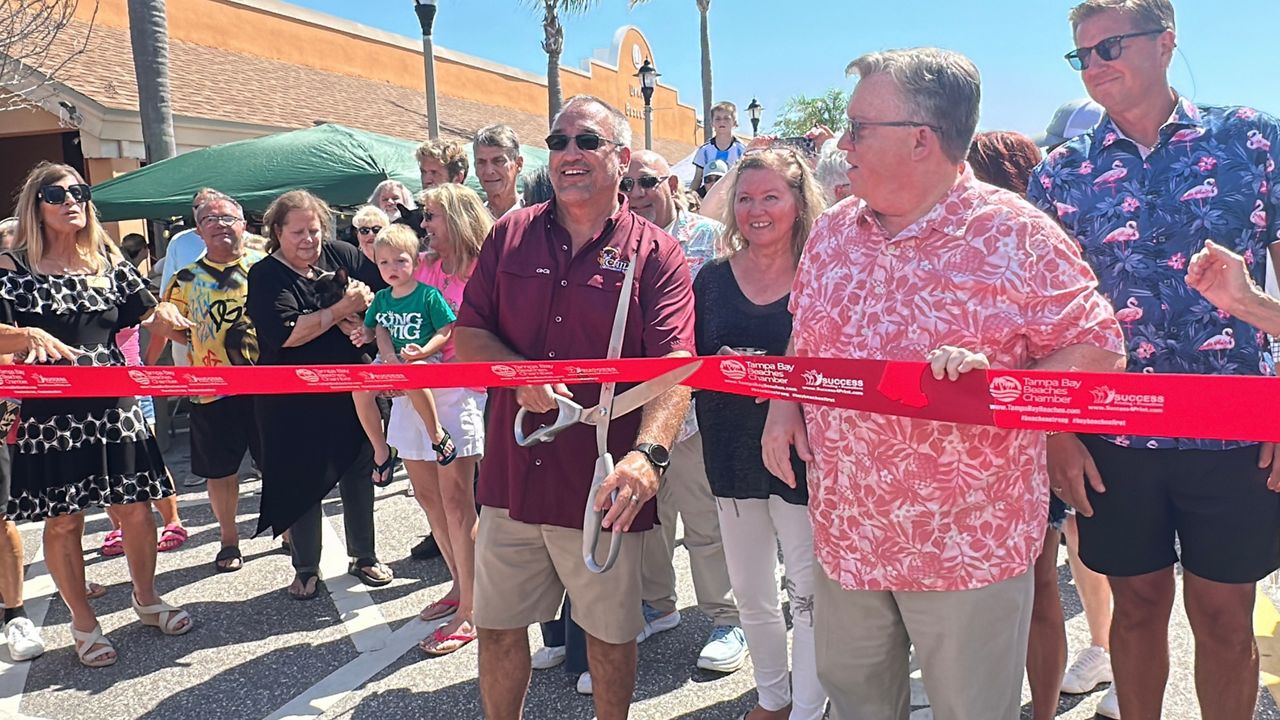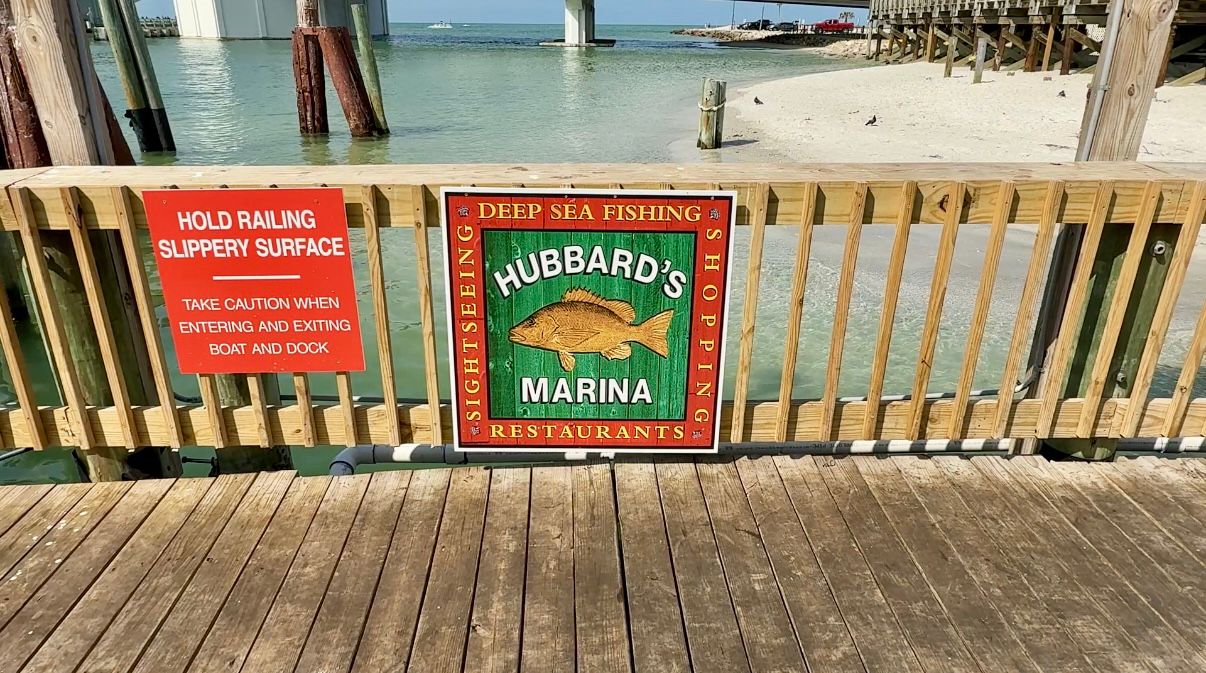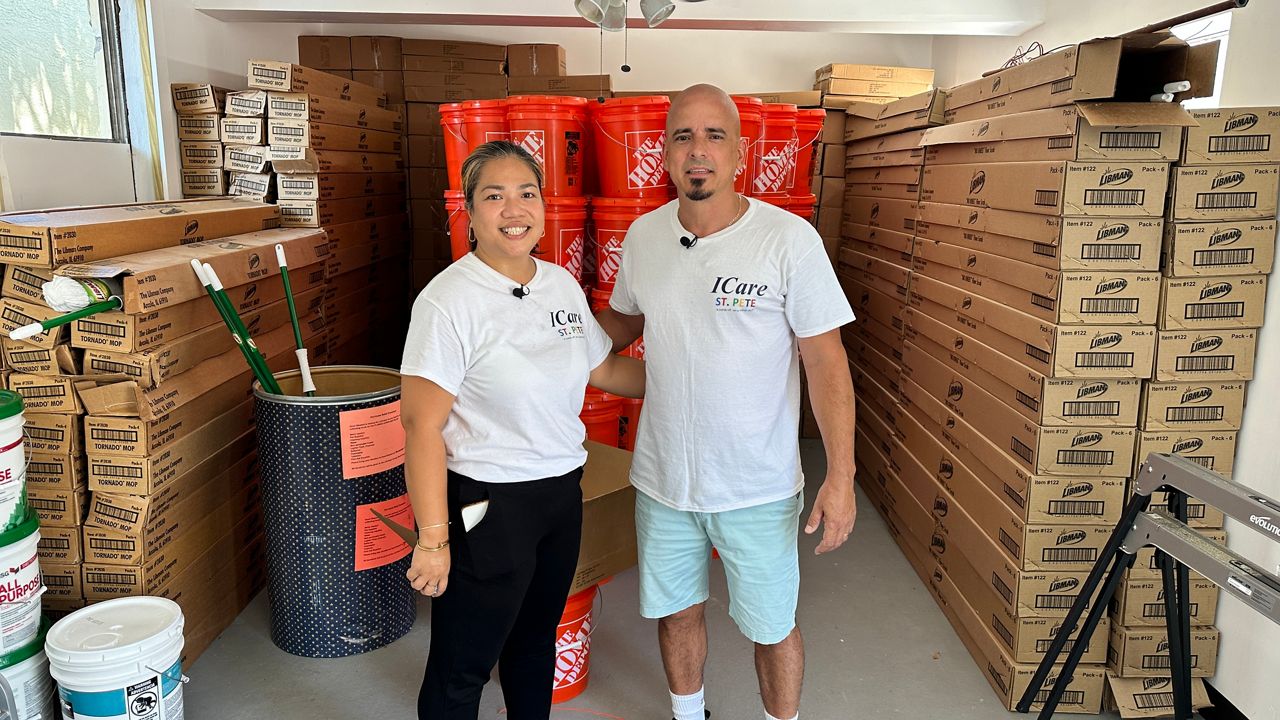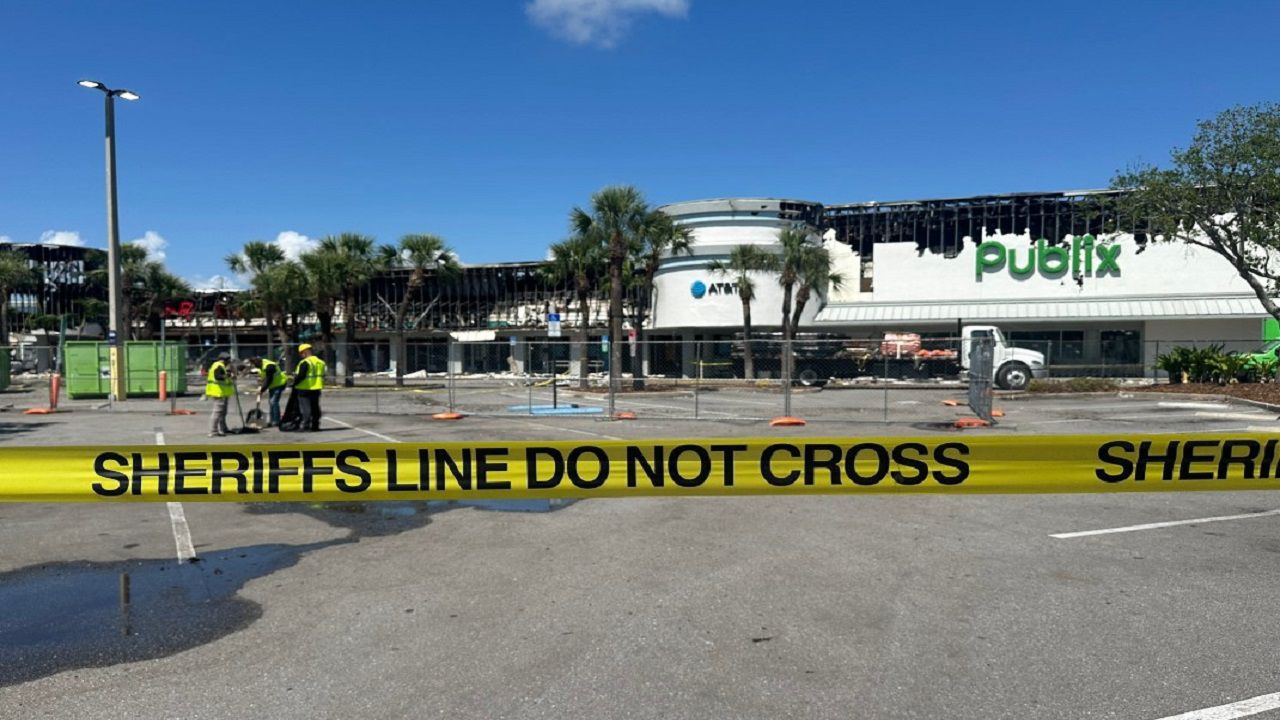PINELLAS COUNTY, Fla. — Miles from the Pinellas County coastline and nearly an hour after sunset, the Bocanegra family were taking turns at the helm in the Intracoastal Waterway between Largo and Clearwater.
Steven and Beth Bocanegra recently back moved to Florida and purchased a boat to fully embrace the beach paradise that surrounds them.
“We have a 13-year-old daughter, and the last thing we want to do is put her in a situation where something is dangerous, and so we want to learn how to use our new boat and be as safe as possible for our family and other people on the water,” said Beth Bocanegra.
“It’s kind of a nervous thing to take your boat out at night. That's why we wanted to come out here to get more comfortable,” the Indian Rocks Beach resident added.
The couple’s nighttime boat training was being conducted by Captain Morgan, a U.S. Coast Guard-licensed master captain and certified instructor. He has provided several lessons — all hands-on training — to the couple over the past several weeks focusing on different conditions and scenarios.
"When you're boating, there can be this pressure while you're doing certain things, so he also teaches us to stay calm at all times," said Steven Bocanegra.
“Operating at night is completely different,” Captain Morgan, the owner of Captain Morgan’s Boat Training and Charters, said. “It’s dangerous and requires additional skills to monitor light patterns, other vessels passing by, and the many obstructions that you could possibly run into, including swimmers, paddlers, floating debris piles, navigation markers, bridge abutments and other boats with improper lighting.”
Properly functioning lights are legally required. Boat operators must utilize the vessel’s green (starboard), white (stern) and red (port) lights.
Captain Morgan emphasized the importance of navigating in the dark with just these three lights illuminated to avoid blinding other boaters nearby.
Boat operators are also required by law to maintain a proper lookout using sight, hearing, and all other available means, especially radar and night vision, if a boat is equipped with them.
“There is no requirement for hands-on boat training, and I think that’s a pretty significant deficiency when all other modes of transportation require hands-on training, whether it be a motorcycle, car, or an airplane,” said Captain Morgan.
He recommends boaters always follow these safety guidelines to avoid collisions and accidents:
- Ensure your vessel lights are on and compliant.
- Don’t assume other vessels and objects are illuminated. There are many obstacles and obstructions in the water that are not lit and difficult to see at night.
- Slow down when visibility is limited.
- Use all tools available to maintain a proper lookout (sight, sound and radar, if equipped), as required by law
- File a float plan, or at a minimum, tell family and friends where you are going and when you will be returning.
The Florida Fish and Wildlife Conservation Commission has a comprehensive list of the boating regulations and safety tips for boat operators in the State of Florida.












